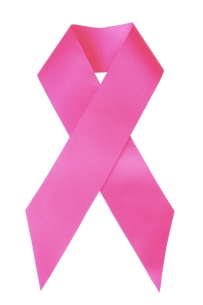
35 months ago my wife was diagnosed with breast cancer. It seemes so long ago but time really flew The care we received from the UCSF Breast Cancer Clinic was unparallelled. This week I came across an article covering the head of the clinic and thought I’d share it with all of you:
by Julian Guthrie for the San Francisco Chronicle:
Surgeon Laura Esserman, head of breast cancer research and treatment at UCSF, has favorite songs she sings to patients as they’re about to go under a general anesthetic. There’s “Don’t You Worry ‘Bout a Thing,” and her all-time favorite, “For Good.”
One of her greatest areas of impact may come through a statewide research project called Athena, which she has spearheaded and will involve the early screening and follow-up for breast cancer of 150,000 women statewide at five UC cancer centers. The University of California initiative has just begun to enroll patients at UCSF.
Q: What are you excited about right now in the cancer field?
A: We started enrolling patients at two of our five centers, with others starting to enroll in July. We have also started doing a comprehensive risk assessment for every woman who comes in for screenings. We are looking at prevention as part of primary care. We are at the beginning of the road in making breast cancer prevention like heart disease prevention. We want to build a new model.
Q: What is the latest recommendation in terms of mammography?
A: If you are under 50, you need to sit down with your provider and ask for your level of risk. What is my breast density? Should I get screened or not screened? If your risk is high, yes, get screened. But again, I think screening has the most significant benefit for women between the ages of 50 and 70.
Q: What are the most important lifestyle changes people can make for breast cancer prevention?
A: If you are postmenopausal and you are overweight, you will have higher levels of estrogen. Through diet and exercise, you can bring that down, which is good for everything, including a sense of well-being. We try to get women to stick to no more than three to four glasses of wine a week, as alcohol is an associated risk factor for breast cancer.
Q: Have you developed a thick skin in delivering the news to women and men that they have breast cancer?
A: I don’t have a thick skin. You can’t. The good news is that there are some people for whom cancer is not that significant, where you can really reassure the person. Of course, it’s very hard if you know someone is in a really bad situation. I face it with them. You can’t just sit back and say this is an academic exercise. This is something that affects their lives – that determines whether their children will grow up and know them.
Q: Where did you grow up, and what did you want to be?
A: I was born in Chicago, and when I was 9 my family moved to Miami. I always wanted either to be a cancer researcher or cancer doctor.
Q: What was your awakening to cancer?
A: Hmm. I read a biography of Madame Curie. I thought what she did was cool.
Q: Where do you live in the city and where are your favorite hangouts?
A: Ashbury Heights. I love to work my way through the Top 100 restaurant list. My son and I were working our way through the cheap eats list.
Q: Secret talents?
A: I love to barbecue anything.
Q: How does working in the midst of cancer, when life becomes more precious, affect you?
A: You never know what’s in store for you. You have to live life to the fullest. I have a great sense of urgency. We need more answers and solutions.
Q: If you weren’t working as a pioneer in the breast cancer field, what would you be doing?
A: Trying to improve the education system. When I cure cancer, I’ll start working on that.
Read more: http://www.sfgate.com/cgi-bin/article.cgi?f=/c/a/2011/06/22/DDS81JRVIS.DTL#ixzz1QpkKfK4H

I have the BRCA mutation with an 84% chance of having it in my lifetime. I’d be interested in hearing about what it’s like for a husband watching his wife go through this sort of thing.
You can read through this blog and find from my cancer entries what went through my head
It was diffifult and from the other husbands I’ve met, it has been a life changing experience. To be honest, I never thought I would react the way I have, but I feel like it proved to me more than anything that I love my wife. I think others found they didn’t love their wife enough to support her through sickness and in health. Unfortunately my wife’s brother just found out he has male breast cancer so this is a genetic thing. I am very weary of my daughter and son given that both their grandmothers, their mother and their uncle have had breast cancer.